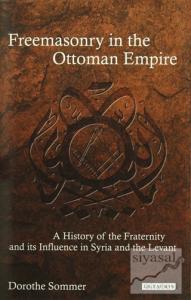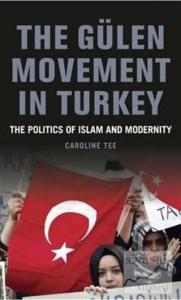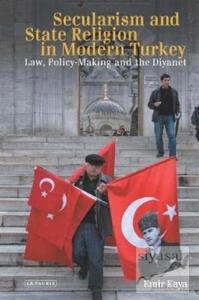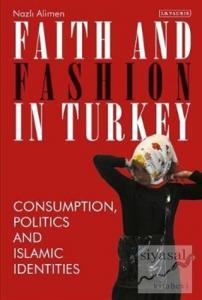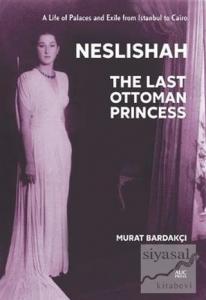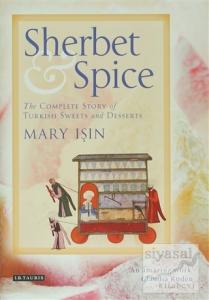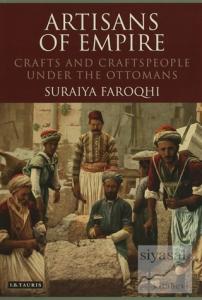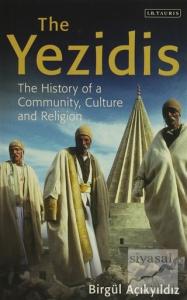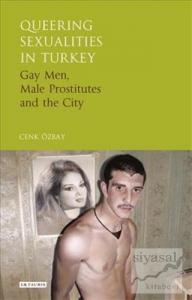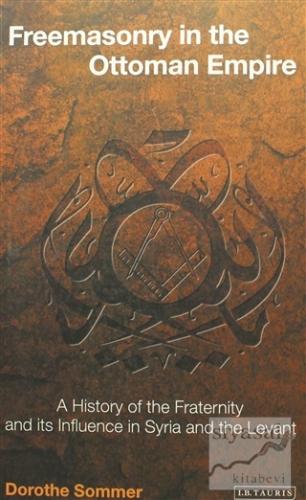
The network of freemasons and Masonic lodges in the Middle East is an opaque and mysterious one, and is all too often seen -within the area - as a vanguard for Western purposes of regional domination.But here, Dorothe Sommer explains how freemasonry in Greater Syria at the end of the nineteenth and beginning of the twentie century actually developed a life of its own, promoting local and regional identities. She stresses that during the rule of the Ottoman Empire, freemasonry was actually one of the first institutions in what is now Syria and Lebanon which overcame religious and sectarian divisions. Indeed, the lodges attracted more participants - such as the members of the Trad and Yaziji Family, Khaireddeen Abdulwahab, Hassan Bayhum, Alexander Barroudi and Jurji Yanni - than any other society or fraternity. Freemasonry in the Ottoman Empire analyses the social and cultural structures of the Masonic network of lodges and their interconnections at a pivotal juncture in the history of the Ottoman Empire, making it invaluable for researchers of the history of the Middle East.
'Dorothe Sommer makes two important contributions to the field. She not only provides us with a detailed overview of masonic activity in Ottoman Syria and Palestine, she also convincingly demonstrates that the Syrian lodges were not instruments of imperialist expansion serving a European agenda, but opportunity structures used by Ottoman Syrians to build solidarity networks that transcended ethnic and religious divisions in society.'
- Professor Erik-Jan Zurcher, Faculty of Humanities, Leiden University, and author of Turkey: A Modern History (I.B.Tauris)
'a worthy rea
William Armstrong, Hurriyet Daily News Online
IA] fascinating ex f the lo their relations with each other and worldwide Freemasons' - Maron James, Today's Zaman
Dorothe Som holsa PhD in History from Leiden University. She formerly worked at The Centre for Research into Freemasonry and Fraternalism at The University of Sheffield.
The network of freemasons and Masonic lodges in the Middle East is an opaque and mysterious one, and is all too often seen -within the area - as a vanguard for Western purposes of regional domination.But here, Dorothe Sommer explains how freemasonry in Greater Syria at the end of the nineteenth and beginning of the twentie century actually developed a life of its own, promoting local and regional identities. She stresses that during the rule of the Ottoman Empire, freemasonry was actually one of the first institutions in what is now Syria and Lebanon which overcame religious and sectarian divisions. Indeed, the lodges attracted more participants - such as the members of the Trad and Yaziji Family, Khaireddeen Abdulwahab, Hassan Bayhum, Alexander Barroudi and Jurji Yanni - than any other society or fraternity. Freemasonry in the Ottoman Empire analyses the social and cultural structures of the Masonic network of lodges and their interconnections at a pivotal juncture in the history of the Ottoman Empire, making it invaluable for researchers of the history of the Middle East.
'Dorothe Sommer makes two important contributions to the field. She not only provides us with a detailed overview of masonic activity in Ottoman Syria and Palestine, she also convincingly demonstrates that the Syrian lodges were not instruments of imperialist expansion serving a European agenda, but opportunity structures used by Ottoman Syrians to build solidarity networks that transcended ethnic and religious divisions in society.'
- Professor Erik-Jan Zurcher, Faculty of Humanities, Leiden University, and author of Turkey: A Modern History (I.B.Tauris)
'a worthy rea
William Armstrong, Hurriyet Daily News Online
IA] fascinating ex f the lo their relations with each other and worldwide Freemasons' - Maron James, Today's Zaman
Dorothe Som holsa PhD in History from Leiden University. She formerly worked at The Centre for Research into Freemasonry and Fraternalism at The University of Sheffield.











